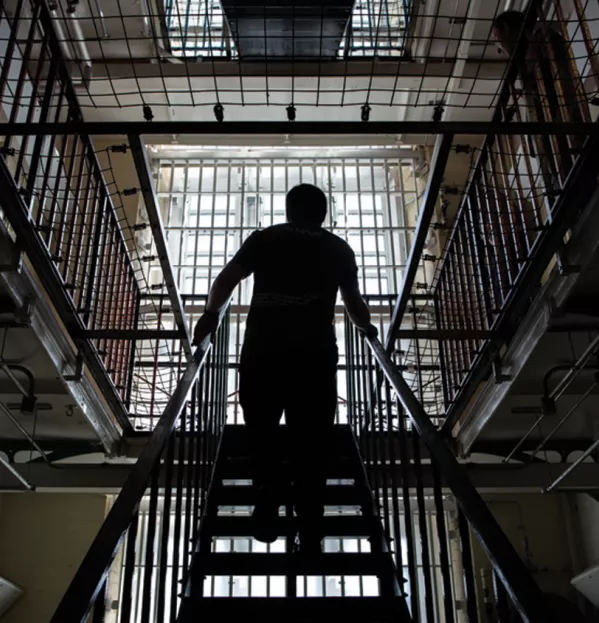In recent years, the Scottish Prison Service (SPS) has argued that prisons have an important role to play in rehabilitating offenders, and that “purposeful activity” should support the development of strengths and potential. And as part of my research, I have examined the potential role that prison chaplains can play within rehabilitation.
I conducted research in Polmont, Scotland’s largest young offender institution, where Christian pastors and imams share office space and regularly collaborate on support strategies for the young inmates. While some inmates who I interviewed were of a Christian background, others were of Islamic descent, or had no religious background at all.
Many young men described how they had begun to feel a need for some type of personal and spiritual support (through the chaplaincy) while in prison, even those who were without religious belief. This sometimes came about during periods of bereavement, loneliness or times of trouble.
For some, contact with prison chaplains ignited or rekindled an interest in a spiritual relationship with a higher power, through the reading of religious passages and encouragement of prayer. Ultimately, this brought about feelings of calmness, peace and self-discipline.
Many young men in prison described how they had begun to feel a need for some type of personal and spiritual support
Most commonly, the men talked about the trust that they had developed in the chaplains. They felt that they could share personal issues with them and that the chaplains made time to offer a listening ear.
They literally felt that they had never been listened to before: at school, they had been labelled as academic failures and became disaffected by authoritarian approaches to discipline. In prison, they were treated similarly and felt that officers were disrespectful and distrustful. In contrast, chaplains made them feel like human beings again. One young man explained that “they treat you like just normal…it’s as if you’re not in the jail”.
The young men felt that their involvement with chaplains had opened up new possibilities for coping with life outside prison. Some believed their new-found faith would support them to desist and rehabilitate, while others with no faith simply felt that personal support from chaplains had given them extra motivation and resilience.
In recent times, the SPS has identified that purposeful activity is often too narrowly focused on education programmes, vocational training and work placements. The young men indicated that school, similarly, had been too focused on academic work and devoid of the unconditional care and support that they really needed.
Although small in nature, I believe that my research provides some evidence to suggest that chaplaincy is vital in enabling prisons to realise the SPS’ new-found rehabilitative, desistance-focused vision. But the unconditional personal support that chaplains provide may have lessons for all of us who work with the most disadvantaged young people - whether that is in prisons, communities or schools.
Professor Ross Deuchar is assistant dean and co-director of the Interdisciplinary Research Unit on Crime, Policing and Social Justice in the School of Education at the University of the West of Scotland
